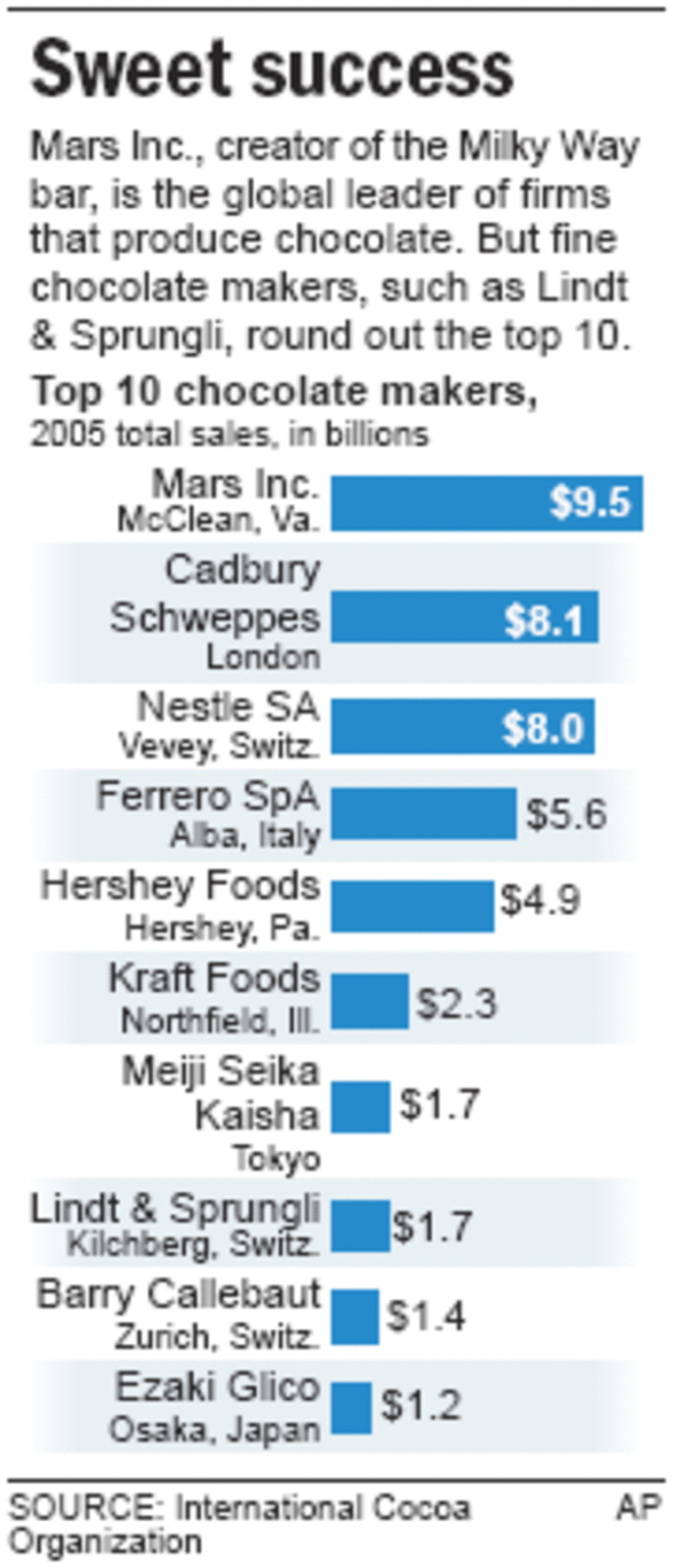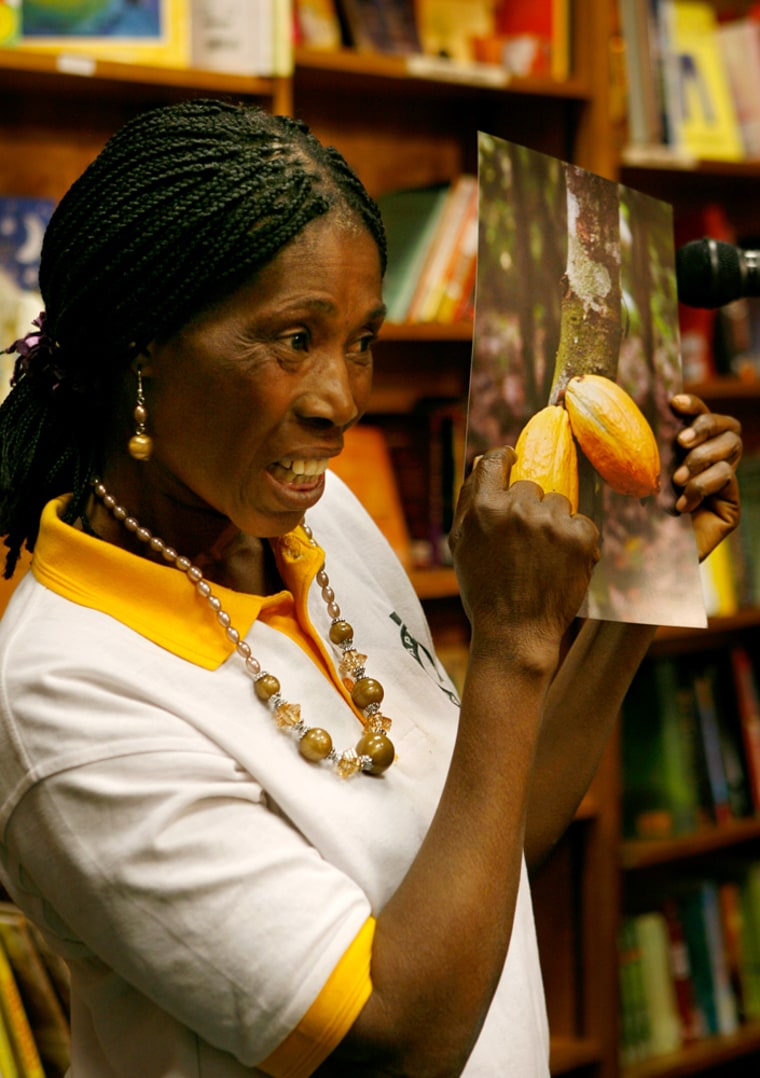A chocolate company part-owned by a Ghanaian cocoa farmers’ cooperative is offering Valentine’s Day treats that it says are guilt-free — calories notwithstanding.
Divine Chocolate, a British company that has been operating since 1997, recently set up a sister company in Washington with the aim of bringing “fair-trade chocolate” to the mainstream U.S. consumer. The company pays farmers a guaranteed minimum price for their cocoa beans in an effort to protect them from market fluctuations and help lift them out of the poverty that plagues Africa’s cocoa-producing regions.
Divine Chocolate is made with chocolate produced by the members of Kuapa Kokoo, a co-op created following the 1993 liberalization of Ghana’s cocoa market that now includes some 20,000 small-scale farmers. The co-op created the Day Chocolate Co., later renamed Divine Chocolate Ltd., in partnership with natural cosmetics retailer Body Shop International PLC and British charities.
The U.S. company opened for business in October. The British Divine and Kuapa Kokoo each have a 26 percent stake in it, giving the farmers a total interest of 33 percent. Other investors include Oikocredit, a Dutch organization that provides loans in developing countries, and the Baltimore-based charity Lutheran World Relief.
Divine’s chocolate is made in a small German factory from cocoa beans produced by Kuapa Kokoo farmers. Farmers are paid a minimum of $1,600 per ton — or the world price when that happens to be greater — plus an additional “social premium” of $150 per ton. The market price for cocoa beans is currently about $1,400 a ton, but it has gotten as low as $700 and as high as $2,000 since Divine has been in existence, said Sophi Tranchell, managing director of the British Divine.
The social premium is paid into a separate account and used by villages to pay for things such as clean water wells, schools, mobile medical clinics and grinding mills to produce palm seed oil.
Higher income, better life
Comfort Kumeah, the co-op’s national secretary, said that before the co-op, farmers like her were often cheated by cocoa buyers.
“With the establishment of Kuapa Kokoo, it’s our own organization — we control it,” she said during a visit to Washington this week that is part of Divine’s Valentine’s Day publicity campaign. “We vote someone to weigh the cocoa. ... If he is doing something we don’t like we simply vote him out.”

Kumeah, 58, owns a five-acre farm in Ghana’s Ashanti region that she uses to supplement her salary as a kindergarten teacher — a job that involves supervising 128 4- and 5-year-olds with just one other teacher.
The higher income Kumeah has earned from fair trade cocoa sales has enabled her to send her own five children to secondary school, she said. Though education is free in Ghana, parents must pay for books and lodging, Tranchell said.
Still, there’s plenty of room for improvement even for members of Kuapa Kokoo, Divine says. Fair trade makes up only a small portion of the co-op’s total sales; the rest of the farmers’ crop is sold at the fluctuating market price.
Besides Divine, 33 other companies sell fair-trade cocoa products in the U.S., according to TransFair USA, which certifies fair-trade products.
Chocolate's wide reach
Mainstream chocolate companies say they too have been working to better the lives of cocoa farmers. That includes efforts to improve the economic return to cocoa farmers, increase access to quality education and ensure that cocoa is grown according to international labor standards, said Susan Snyder Smith, a spokeswoman for the Chocolate Manufacturers Association.
Divine Chocolate in Britain had revenue of about 9 million pounds, or $17.6 million, last year, up from 7.7 million pounds in 2005, and expects to return its first dividend to the farmers, Tranchell said. The chocolate is available in all of Britain’s major supermarket chains, including Asda, a discount chain owned by Wal-Mart Stores Inc., she said.
Erin Gorman, chief executive of Divine in the United States, said she hopes the U.S.-based company can achieve a similar reach. Right now the chocolate is available in the U.S. through fair-trade Web sites and specialty stores around the country.
“We’re hoping that people who like chocolate and who like our story will ... ask for the chocolate when they’re shopping at mainstream supermarkets,” she said.
